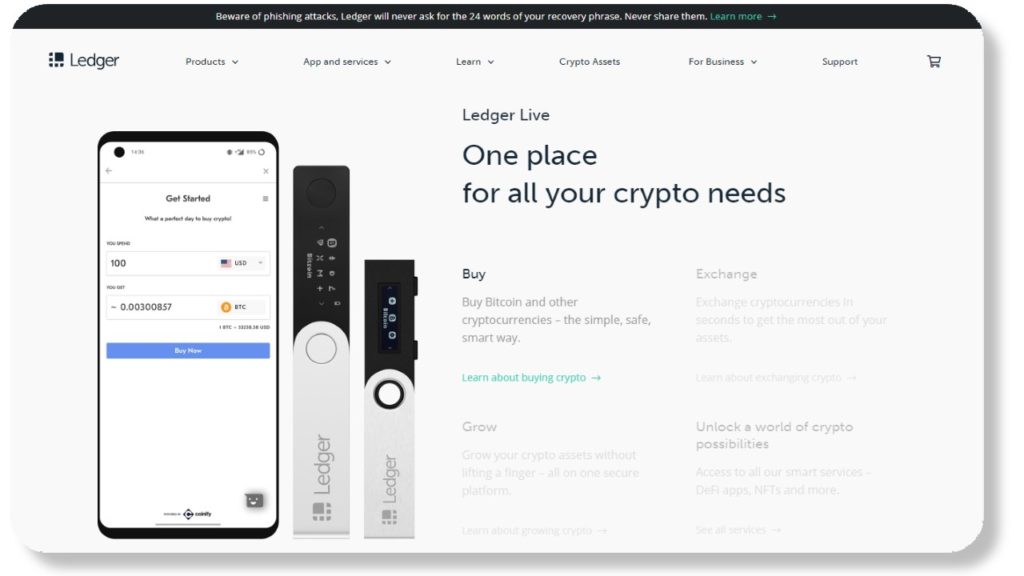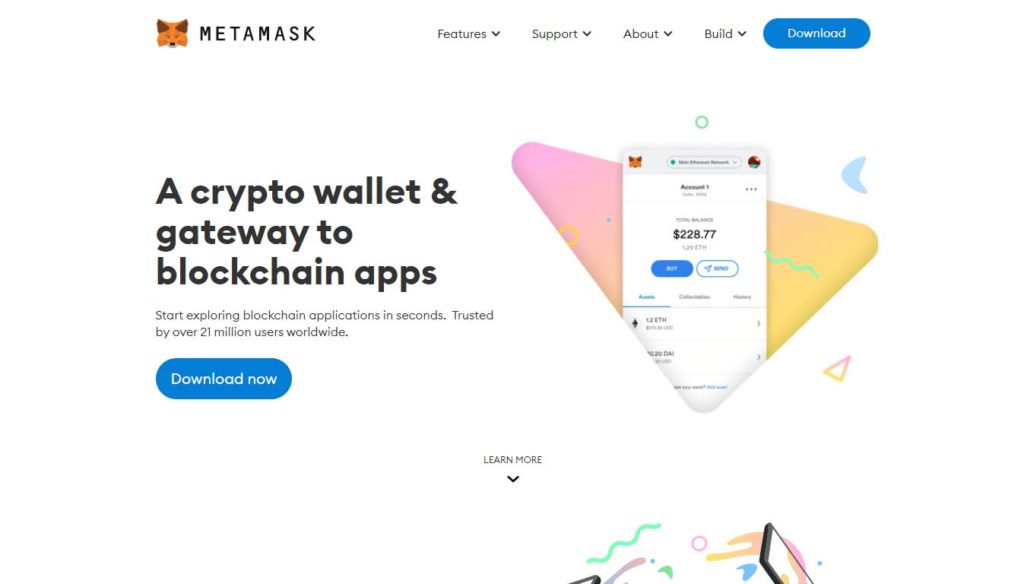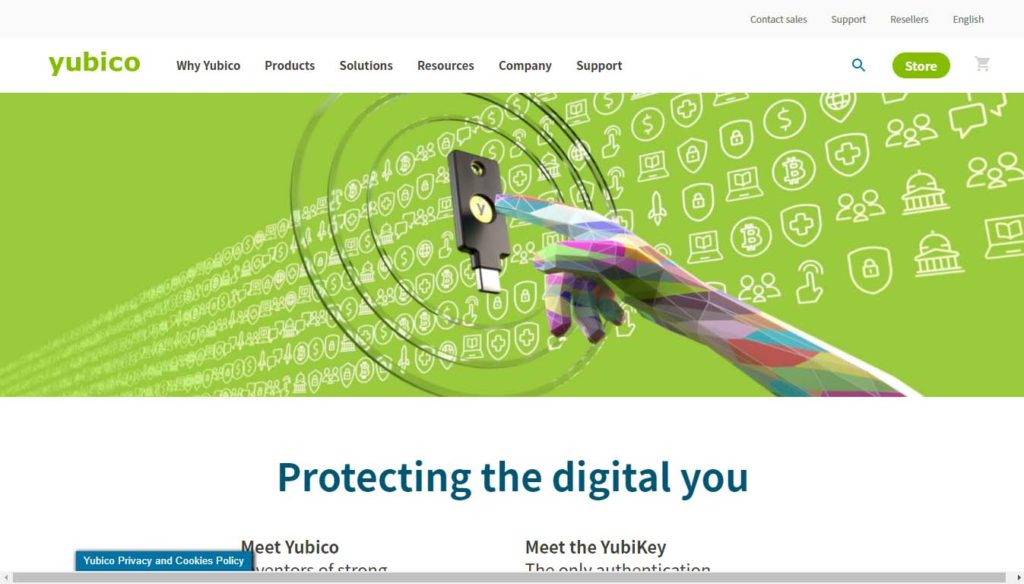Last updated on April 27th, 2024 at 01:33 pm
Introduction
We all know about Bitcoin, it is the most popular Cryptocurrency. For a long time, the word ‘Cryptocurrency’ was considered synonymous with Bitcoin. And then came Ethereum. Just like Bitcoin Wallets, in order to store your Ethereum Currency, you would require an Ethereum Wallet. Accordingly, it was inevitable to write about the Best Ethereum Wallets in the market. And here it is.
Let us first discuss a bit about Ethereum Cryptocurrency and then move on to the best Ethereum Wallets.
What is Ethereum Cryptocurrency?
The Ethereum token ‘Ether‘ works the same as other cryptocurrencies, validating transactions through a method called Proof of Work via a huge network of computers, which is later replaced by Proof of Stake as a more energy-efficient alternative in Ethereum 2.0.
When we talk about Ethereum wallets, we are typically referring to the cryptocurrency wallets that hold ‘Ether’ as a token. Being the second most popular cryptocurrency, Ethereum is supported by almost all of the hot and cold wallets. Except the ones made exclusively for bitcoin, like Cobo and Coinkite.
Vitalik Buterin invented Ethereum in 2017. As an idea of decentralization alternative of several different centralized operations like real estate contracts, online purchases, and other intermediary services.
In contrast to other cryptocurrencies of this nature, Ethereum uses its own Turing Complete code ‘Solidity’ to encourage the development of decentralized applications – dApps – on the blockchain platform.
As the investors took the idea of decentralization pretty well, ether has grown in value manifolds in recent years, even rivaling the rate of growth of bitcoin.
Though Ethereum is not an absolute alternative to Bitcoin. They both take advantage of blockchain technology.
Where can you buy Ethereum?
Ethereum as mentioned is quite a well known Cryptocurrency. It is available for trade at all famous cryptocurrency Exchanges like:
What is an Ethereum Wallet?
Just as the terminology suggests, Ethereum wallets are platforms or hardware that let you manage your Ethers. Despite being termed as ‘wallets’. Ethereum wallets work more like a banking app, letting you transact, verify, and receive funds without ever having any ether in their custody.
There are four types of Ethereum wallets as
- Hardware Ethereum wallets,
- Mobile Ethereum applications,
- Web applications and
- Desktop applications.
High Value investors tend to use hardware wallets to keep their credentials and recovery phrases safe.
Criteria of Selection of Best Ethereum Wallets
While selecting the best of the Ethereum wallets. We have used the following criteria:
- Security
- Possession of the Private Key
- Durability
- Speed of concluding transactions
I have not taken the price as a criterion here. Because even though some are expensive, they justify their costs with exceptional security. Let’s continue with the topic.
Best Wallets for Ethereum
There are many hot and cold wallets available for Ethereum. Hence, choosing the best one could be a hassle for you. However, the list below can come in handy when you make your purchase.
- Trezor One (Best Ethereum Wallet – Open Source Code)
- Ledger Nano S Plus (Best Ethereum Wallet – Affordable)
- Ledger Nano X (Best Ethereum Wallet – Multiple apps)
- Exodus (Best Ethereum Wallet – Beginners)
- Metamask (Best wallet for Ethereum – convenience wise)
- Atomic Wallet (Best hot wallet for Ethereum)
- Exchange wallet with YubiKey
1. Trezor One

A pioneer company to offer hardware wallets in cryptocurrency exchange. Trezor wallets resemble small calculators with only two buttons and a very small OLED screen. It is available in two different versions named Trezor One and Trezor T.
Trezor One is the more affordable option. Hardware integrated private keys and two-step authorization makes Trezor one of the most secure hardware wallets for Ethereum.
Pros
1. Randomly Generated Seed:
Trezor One lets you comprehend a randomly formed recovery seed when setting up for the first time to ensure the safety of your backups. The seed phrase is only shown once and you need to keep it written safely for the rest of your days with the product. Being a hardware Ethereum wallet, Trezor One never lets any program, be it compromised or safe, touch your private keys.
2. Simple to Use:
Trezor T is the simplest of the hardware wallets out there. Every transaction followed by the first setup is as fluid as it gets. The software counterpart is also equipped with a very welcoming user interface to make your job easier.
3. More Options
Trezor One can support more than 5000 cryptocurrency tokens, including Ethereum and Bitcoin.
Cons
1. Ergonomically Atrocious
No arguing of the fact that Trezor One is not very appealing. The small screen and buttons don’t make a very visually interesting device.
2. Ledger Nano S Plus

Ledger has set itself up for a long fight in the hardware wallet segment. With their proprietary, chip-integrated operating system BOLOS and USB-C, Ledger Nano S has long been dominating the hardware wallet market for Ethereum.
Pros
1. Security
Ledger Nano S Plus is the best hardware wallet for Ethereum. Thanks to their exclusive Operating System and two-chip-based system, Ledger has managed to produce the most secure crypto wallet for general enthusiasts and professionals.
2. Third-Party Apps
Ledger Nano S supports the installation of third-party apps depending on the space and support available for the intended installation.
3. Lightweight
Being a USB like peripheral, the Nano S Plus looks very attractive and is very lightweight to carry around with you.
4. Price Point
Ledger Nano S Plus is priced almost half to Nano X.
Cons
1. Not Open Source
Ledger doesn’t release their source code to be reviewed by public eyes due to the very nature of its proprietary software. But, the essence of Ethereum is being open source.
2. Only three tokens can be installed at any moment. For more capacity you need to shift to Ledger Nano X
3. Recovery Sheet
Ledger provides a piece of paper with a 24-word recovery password to recover your backed-up data after something goes wrong. But paper being paper, you can misplace it or it can be accidentally destroyed if you do not take utmost care.
4. User Interface
The user interface of the software counterpart could have been a little easier to understand for beginners.
3. Ledger Nano X
I have purposely added Ledger Nano X to the list because it is a good option for investors who want to store and stake multiple cryptocurrencies and install multiple apps (DeFi).
Ledger Nano X has almost the same features as Ledger Nano S Plus. Except:
1. Capacity
Ledger Nano X has a higher capacity compared to a Ledger Nano S Plus. You can install up to 100 applications on a Ledger Nano X and up to 6 on Ledger Nano S Plus
2. Battery backup
As Ledger Nano X is a Bluetooth enabled device it comes with an 8 hours standby mode. Further, it has a USB-C type connector.
In contrast to this, Ledger Nano S doesn’t have a battery backup and comes with a USB-B type connector.
4. Exodus (Best Ethereum Wallet for Beginners)

Exodus is a free wallet for Ethereum with support to most of the major operating systems including Windows, Mac, and Android. If you are a newbie to cryptocurrency and trying to get a feel for it, Exodus should be your first option. The User Interface of the product is very beginner-friendly and is quite slick.
Pros
1. Free to use
Exodus is absolutely free to use on all platforms, they earn their share through the exchange API they provide to other institutions.
2. User Interface
Exodus has an absolutely brilliant user interface that not only welcomes beginners to a grand scale of things but also appeals to the professionals Ethereum traders who have been there for a long time.
3. Built-in Exchange
Exodus is backed up by shapeshift for its built-in exchange and hardware storage option.
4. Cold Storage
With the help of Shapeshift, this ethereum wallet has been able to provide a hardware wallet solution to its users.
5. 150+ Cryptocurrency options
An exceptional addition to the Exodus feature list. The support and translatability to trade between over 150 crypto tokens including Ethereum and Bitcoin is a function to behold. With the exponential popularity of cryptocurrencies, it’s only better to keep yourself ready for the next crypto.
6. Customer Support
There is no way you can complain about Exodus customer support being unresponsive. They provide 24/7 support for any question or complication you face.
7. Customizable Fees
Customizable Fees mean you can choose your transaction fees depending on the speed of the transaction that you might prefer following your budget.
Cons
1. Partially open source
Having open-source code means hundreds of eyes watching over you. Exodus, keeping their code to themselves makes fixing security issues harder.
2. Not many advanced options
Exodus is excellent for beginners, but several seasoned users complain about it being far too convenient to be utilized by professionals.
5. Metamask

Metamask undoubtedly is my favorite out of the list. If we talk about security, the Private Keys are stored in the browser/app itself.
Earlier Metamask used to support only Ether and other ERC-20 tokens. ERC-20 tokens are the ones which are made on the Ethereum blockchain. It had optimized itself to provide you the best experience as an Ethereum user. But with the growing cryptocurrency infrastructures Metamask has found its way to other network as well.
Metamask can store ERC20 (Ethereum) as mentioned above. You can also configure Metamask to add other networks like Binance Smart Chain, Polygon Network, Velas Network amongst other default networks.
Pros
1. Free to use
Metamask is downloadable as a free browser extension for Chrome, Firefox, and Edge that enables you to execute Ethereum functions seamlessly.
In all logical senses, a chrome extension is not a match for desktop applications in computation power and convenience, but Metamask has utilized the limitations to produce a lite weight Ethereum wallet.
2. Open Source Software
Trezor wallets and Metamasak, both have released their source codes online. Anyone can access and request to modify their codes from anywhere in the community to fix any vulnerabilities they stumble upon.
3. Hierarchical Deterministic Settings
Hd settings let users back their data up with a complicated phrase called recovery seed.
4. Customer Support
Despite being a community-driven piece of software, Metamask has quite an extensive support documentation and FAQ list.
5. Local Key Generation
Software wallets generally store your private keys on their servers, which they claim to remove after every transaction. Metamask has completely excused itself from taking the responsibility and stores your keys on your browser itself.
Cons
1. Browser Dependency
The whole operation of Metamask goes through your browser. While no malware can access your wallet directly through the browser, but your browser itself can access your wallets. Many cryptocurrency users aren’t comfortable using mainstream browsers like Chrome and Firefox for the very reason that conglomerates can have information about them.
6. Atomic Wallet (Best Hot Wallet)

Atomic Wallet is a highly secured Hot Wallet for Ethereum. A hot wallet means that it is connected to the internet. Atomic Wallet also has its exchange where you can buy and exchange your Ethereum with Fiat currencies. Further, it supports over 500 other coins which you can store and exchange.
It is available for download on PCs and Mobile (both Android & iOS). An important feature of this wallet is that it can be additionally used for Staking Ethereum 2.0.
Suggested Reading: What is Staking of Cryptocurrencies? An amazing way to claim rewards
7. Cryptocurrency Exchange wallets with YubiKey.

Some people like storing their Ethereum on their Exchange wallets only. Exchange wallets, like Binance, Kucoin, Huobi etc. in general, are more vulnerable to cyber attacks, because they save your private keys with themselves. However, there are certain precautions that you can take to safeguard your fund in a Centralized Exchange. And one of these is to enable 2-Factor Authentication.
With an external 2-Factor Authenticator, you are required to put a passcode before any transaction can go through.
YubiKey is one such external 2-Factor Authenticator. You have to connect it to :
- Configure it to your exchange
- Connect it your device
- And press the button on YubiKey before any transaction can conclude.
The Bottom Line
Every Ethereum wallet has its pros and cons. Hardware wallets are safer options compared to Online Wallets. In my opinion.
The safest Ethereum wallet is Ledger Nano S Plus. However, if you are not on a budget and want to store, stake and install more cryptos and apps, then go for the advanced version i.e Ledger Nano X.
In case the availability of Ledger is a challenge, you can look at Trezor-T as a cost-effective and safe option.
Having said that, Exodus has extensive features and you can pair it with Trezor for Staking as well.
For users who want to store their currencies on Exchanges themselves, I would strongly suggest the use of YubiKey.
Apart from this article on Best Ethereum Wallets, I have also discussed about best Bitcoin wallets here



